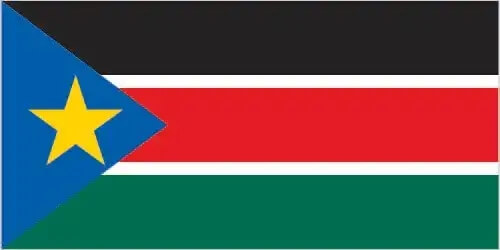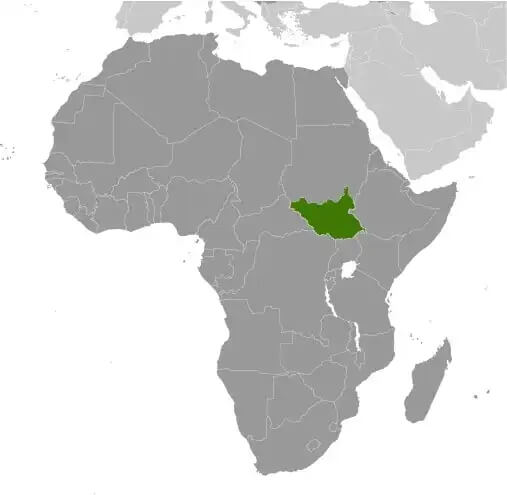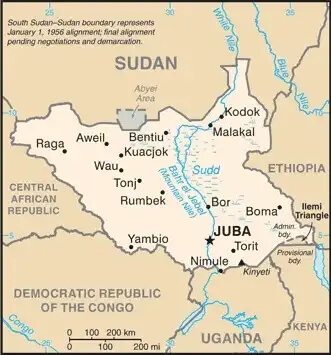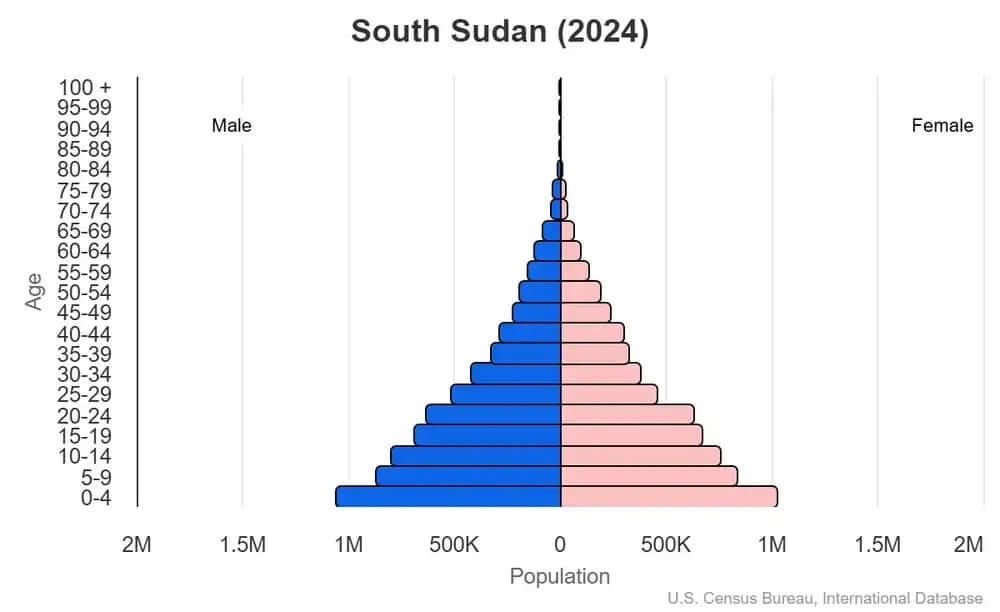World Book
South Sudan
World Book Index
33


With a score of 33, the country is ranked 157th out of 158 countries in the World Book ranking. (more information)
Introduction
South Sudan, which gained independence from Sudan in 2011, is the world’s newest country. When Sudan attained independence in 1956, the southerners were assured of full participation in the political system, but the Arab government in Khartoum reneged on its promises. Since independence, South Sudan has struggled to form a viable governing system and has been plagued by widespread corruption, political conflict, and communal violence. Implementation of a 2018 peace agreement has been stalled as South Sudanese leaders wrangle over power-sharing.
Neighboring countries
Central African Republic - Democratic Republic of the Congo - Ethiopia - Kenya - Sudan - Uganda
Geography
Area
total: 644,329 sq km
Climate
hot with seasonal rainfall influenced by the annual shift of the Inter-Tropical Convergence Zone; rainfall heaviest in upland areas of the south and diminishes to the north
Natural resources
hydropower, fertile agricultural land, gold, diamonds, petroleum, hardwoods, limestone, iron ore, copper, chromium ore, zinc, tungsten, mica, silver
People and Society
Population
total: 12,703,714 (2024 est.)
Ethnic groups
Dinka (Jieng) approximately 35-40%, Nuer (Naath) approximately 15%, Shilluk (Chollo), Azande, Bari, Kakwa, Kuku, Murle, Mandari, Didinga, Ndogo, Bviri, Lndi, Anuak, Bongo, Lango, Dungotona, Acholi, Baka, Fertit (2011 est.)
Languages
English (official), Arabic (includes Juba and Sudanese variants), ethnic languages include Dinka, Nuer, Bari, Zande, Shilluk
Religions
Christian 60.5%, folk religion 32.9%, Muslim 6.2%, other <1%, unaffiliated <1% (2020 est.)
Population growth rate
4.65% (2024 est.)
Government
Government type
presidential republic
Capital
name: Juba
Executive branch
chief of state: President Salva KIIR Mayardit (since 9 July 2011)
head of government: President Salva KIIR Mayardit (since 9 July 2011)
Diplomatic representation in the US
chief of mission: Ambassador Santino Fardol Watod DICKEN (since 18 September 2024)
Diplomatic representation from the US
chief of mission: Ambassador Michael J. ADLER (since 24 August 2022)
Economy
Economic overview
low-income, oil-based Sahelian economy; extreme poverty and food insecurity; COVID-19 and ongoing violence threaten socioeconomic potential; environmentally fragile; ongoing land and property rights issues; natural resource rich but lacks infrastructure
Real GDP (purchasing power parity)
$6.752 billion (2023 est.)
$6.585 billion (2022 est.)
$6.945 billion (2021 est.)
Real GDP per capita
$400 (2023 est.)
$400 (2022 est.)
$400 (2021 est.)
Exports
$4.499 billion (2023 est.)
$5.811 billion (2022 est.)
$4.652 billion (2021 est.)
Exports - partners
China 51%, Singapore 29%, UAE 10%, Germany 4%, Uganda 3% (2023)
Exports - commodities
crude petroleum, refined petroleum, forage crops, gold, scrap iron (2023)
Imports
$4.443 billion (2023 est.)
$6.402 billion (2022 est.)
$4.037 billion (2021 est.)
Imports - partners
Uganda 33%, UAE 26%, Kenya 14%, China 10%, USA 3% (2023)
Imports - commodities
garments, cement, other foods, iron bars, cereal flours (2023)
Human Development Index
The country's Human Development Index (HDI) is 0.388, ranking it 193rd out of 193 countries tested. (more information)
World Happiness Report
The World Happiness Report ranked the country 156th out of 158 countries tested with a score of 2.817. (more information)



